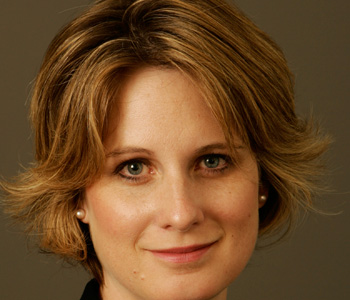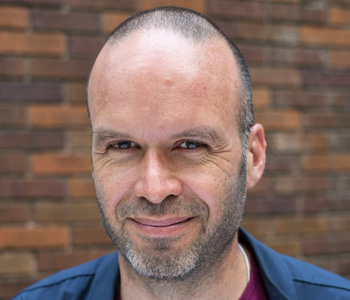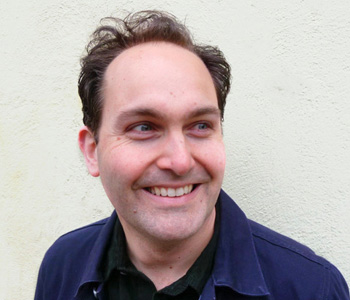Sarah Babb
Behind the Development Banks: Washington Politics, World Poverty, and the Wealth of Nations
University of Chicago Press
336 pages, 9 x 6 inches
ISBN 978 0226033648
ISBN 978 0226033655
This book is about how American politics affects the multilateral development banks—or “the banks,” for short. The best known of these is the World Bank, but several regional banks that are smaller play the same role.
The banks are very influential. Their loans and grants give governments around the world incentives to do certain kinds of things and not do other kinds of things. For example, when lots of loans are available for building dams, it is easier for developing-country governments to build dams. The banks also give loans for policy reforms. The most famous example is the World Bank’s “structural adjustment” program that started promoting free-market policies in the 1980s.
The banks also have a big intellectual influence. The World Bank’s publications set the tone for debates in the world of development experts. If you are a development economist, you may disagree with the World Bank’s position on a particular issue, but you can’t ignore it.
In addition to being influential, the banks are controversial. One of the most common criticisms is that they give bad advice. Some people say the World Bank is partly to blame for some major policy failures of the 1980s and 1990s, when many developing county governments deregulated their economies with the help of structural adjustment loans. Another common criticism is that the banks are ineffective, and try to accomplish too many things at once.
Most of these critiques are aimed the banks themselves, blaming either their management or the many economists who advise them. In contrast, I think that we should start looking more at the role of the “shareholder” governments that own the banks. My book argues that since the 1980s, the United States government has been an “activist” shareholder, and has a played a huge role in the banks’ activities and ideas.

Events in the world of American politics—such as elections, social movements, and the rise of political ideologies—have had a major impact on things multilateral development banks say and do.
The banks’ governing structure mirrors that of private corporations, with voting on their boards weighted by capital contribution. This gives wealthy countries influence out of proportion to their share of the world’s population.
But the reason for the overwhelming American influence in the banks is not so obvious. After all, the U.S. doesn’t have a majority share in any of banks, and it only has a veto on major policy changes in two of them (the World Bank and the Inter-American Development Bank). So why does it carry such weight?
While there are a number of additional reasons, I argue that the most important one—also the most ironic—is that the U.S. does not support the banks wholeheartedly. American policy toward the banks is made by both the executive and Congress—and Congress is almost predictably skeptical.
As a result, when wealthy governments sit down to replenish the banks’ resources, the U.S. negotiator can argue that Congress won’t appropriate the money unless American policy preferences are followed. As the perennial “squeaky wheel,” the U.S. has been very successful in shaping the banks over the past quarter-century.
As a consequence, events in the world of American politics—such as elections, social movements, and the rise of political ideologies—have had a major impact on things multilateral development banks say and do. It is no coincidence that the World Bank became a major promoter of market-liberalizing reforms during the Reagan administration; nor is it a coincidence that the World Bank became more “green” at a time when environmental NGOs had been successfully lobbying key members of Congress.
One of my favorite sections in the book is about how the Reagan administration disciplined the Inter-American Development Bank (IDB) in the 1980s.
The IDB was founded in 1959 to provide loans to Latin American governments; at that time, American policymakers hoped that such loans would keep Latin American countries out of the Communist bloc. Although the U.S. always had an unusually large voting share in the IDB, for many years, it was also willing to give a lot of leeway to the bank’s Latin American management and regional members.
The Republican revolution of 1980 changed all that. Many Republicans in Congress began to argue that the banks were big useless bureaucracies with socialist tendencies; they became very irritated when the IDB persisted in making loans to the Sandinista government in Nicaragua. In a negotiation over replenishing the IDB’s resources, the Reagan administration demanded that the bank make some big changes. They wanted to alter the voting structure to give the U.S. more power, to put more Americans in the bank’s management, and for the IDB to start its own version of structural adjustment lending for free-market reforms.
The IDB’s president, Antonio OrtÃz Mena, didn’t want to be pushed around, and said so. But then the Reagan administration held up the negotiations, and refused to ask Congress for appropriations. OrtÃz Mena resigned, and a new president finally negotiated an agreement in which most of the original U.S. demands were met. Among other things, the new replenishment committed the IDB to making policy-conditional loans under the supervision of the World Bank.

Instead of trying to make the banks more like the United Nations, I think reformers should focus on making shareholder governments more accountable for the things the banks do.
Behind the Development Banks is aimed at many audiences—I hope that I’ve made it interesting and accessible not only to academics, but also to policymakers and people interested in economic development more generally.
Most of all, I would like the book to inform the strategies of people who are interested in reforming the banks and their policies. There are a lot of people today talking about making the banks more democratic—to end the disproportionate influence of the G-7 and the overwhelming influence of the U.S.
Some of these people have detailed blueprints for reform, and most of them are a lot smarter than I am. But I think my book suggests that they may be barking up the wrong tree.
The banks are set up the way they are for a reason. Like private companies, they attract money by giving their shareholders influence to match their contributions. Even back in the 1950s, developing countries were arguing that development financing should be channeled through the United Nations, which is run on a one-country, one-vote basis. But wealthy countries, particularly the U.S., always felt that if they were putting up the cash, they should be calling the shots.
This has been even more the case since the era of U.S. shareholder activism began in the 1980s. I think it’s clear that Congress would never allow the U.S. to contribute to more democratically-run banks; even now, with such strong American influence, they cut appropriations to the banks every year.
The IDB, as I just described, could perhaps have maintained its strong regional representation by becoming a smaller bank—perhaps an organization more like the U.N. economic agencies that offer advice but don’t have a lot of resources. However, just as the banks respond to shareholder pressures, they also respond to powerful internal interests in the organizations’ perpetuation and growth; ultimately, the IDB was willing to cede more control to donors as a price for more resources.
Organizations, as sociologists have long observed, are primarily in the business of their own survival. The African Development Bank started out in the 1960s with only African members on its board of directors; the tradeoff was that it was perpetually strapped for cash. Over time, the African bank steadily sacrificed more and more regional autonomy for the money it needed to become a significant lending institution.
Instead of trying to make the banks more like the United Nations, I think reformers should focus on making shareholder governments more accountable for the things the banks do. This is essentially the tactic of social movements that have recently been trying, quite successfully, to get the banks and the IMF to forgive the debt of low-income countries.
But to put more pressure on shareholders, we need more transparency. The meetings in which the U.S. and other donors decide on the banks’ policies are secret. Changing this could be a first step in holding the shareholders who ultimately control the banks responsible.




We don't put paywalls. We don't distract you with ads. We don't sell your data.
Please help to keep this running!